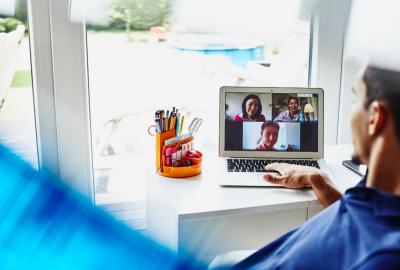Work is always changing, and job interviews are no exception. Figuring out how to present yourself is like hitting a moving target.
The attire for a bank interview may differ from that of a social media startup interview. But no matter where you aim to work or your career goals, you have just one shot to make a good first impression. People start forming opinions about you in the first few seconds before you say a word.
So, imagine you've aced a phone interview, and now it's in-person. Maybe you already asked them about the work culture, dress code, etc. Or maybe you forgot to ask because you were so focused on not sounding like a robot. It happens.
When in doubt, you can never go wrong with professional business attire. However, here are a few more tips if you're scratching your head about what to wear.
stick with the classics
Fashions, fads, and trends come and go, but style remains. Find something that works for you and that you feel comfortable and confident in. If it's a good fit, make it your template for what to wear when you interview.
You can style it up or make it more casual, but it remains essentially consistent. Besides making you feel good, it takes the worry out of one important interview element. Preparing your interview attire beforehand will keep your mind off so you can focus on other important things.
Having a go-to interview outfit simplifies preparation and shows professionalism to potential employers. Being consistent in your appearance is important because it helps create a positive impression. Your skills and qualifications are the main focus in the interview.
neutrals are your friend
A classic suit in a neutral colour such as black, grey, or navy never goes out of style. Hiring managers will respond positively to neutrals. Of course, if you’re still sporting large shoulder pads or a wide lapel, it’s probably time for a new suit.
Avoid loud or flashy patterns or checks. You want the hiring manager's focus to be on your skills and experience rather than your flashy shirt. Buy the best suit you can afford in the most neutral and classic fabric. The better the material, the longer it’ll hold up.
Try avoiding linen, no matter how much you love it and how warm the weather is. Opt for a light wool in summer. Linen wrinkles like crazy — it’s part of its charm in the tropics, but probably a little too casual for a job interview.
accent your neutrals
If you’re feeling a little forgettable in your neutrals, add a little splash of colour. This splash of colour can showcase your personality with a light pattern on your shirt, tie, or scarf is safe.
Speaking of ties, keep it somewhat consistent with your shirt. Avoid crazy motifs that feature Darth Vader or your favourite cartoon characters. You can break out your funky wardrobe once you’ve got the job.
For men, ideally, you’d match your socks to your tie; however, pretty much anything goes nowadays. Though let’s face it, it’s pretty unlikely the pattern on your socks will make or break a job interview.
avoid being too informal
We hope that no one ever kicks someone out of an interview for being too formal. Even if you know that a casual dress code allows jeans, it’s usually best to avoid them in a job interview. The same goes for running shoes, t-shirts, yoga pants—anything that’s a little too casual.
You want to show off your greatest strengths and not have the hiring manager focus on you being too casual. Even though it may be normal attire for the office, remember that you’re in an interview. You must put your best foot forward and show that you take this workplace and opportunity seriously. If no one specifically tells you to wear jeans, dress professionally for the interview based on the job description.
You want the interview's eye contact to be on your eyes—not your outfit.
to pants or to a skirt?
Women no longer have to wear a dress or skirt in the workplace. Women should feel free to select suit pants or a skirt, depending on which they’re most comfortable in.
If you opt for a skirt, keep it around knee-length or longer to be safe. This will help you answer the questions like a pro rather than constantly pulling down your hemline. Play it safe. Show off that you're a good fit for the company.
Whether it's pants or a skirt, Choose the option that aligns with your personal style. This will make you feel confident, ensuring that your outfit exudes professionalism. Remember, a well-thought-out wardrobe choice can convey your competence in any work environment.
dressing for success in job interviews
In job interviews, looking sharp makes all the difference. Whether it's a bank or a startup, dressing right matters.
Stick to classic styles and neutral colours like black or navy. Skip flashy patterns—opt for quality instead. Add a pop of colour in accessories to show some personality, but keep it subtle.
Find the sweet spot between being formal and comfy. Save casual gear for later; interviews call for a pro vibe. And for women, pants or skirts work—pick what fits your style and keep it professional.
Your outfit is your silent introduction. If you get it right, you will impress and show you're a fit for the job. Mastering the interview look is not just about clothes. Using correct language is vital in the evolving future workplace.






